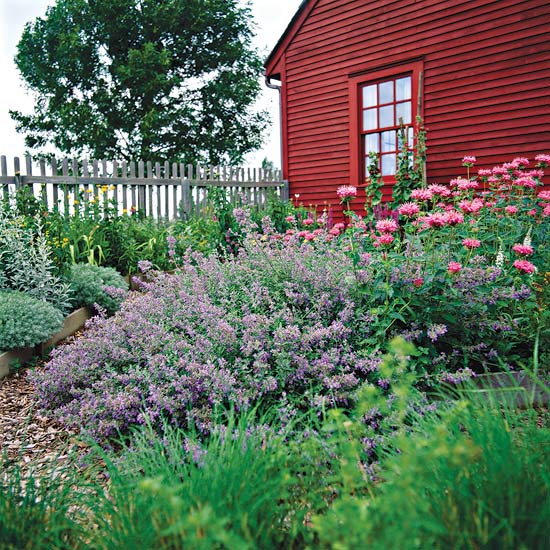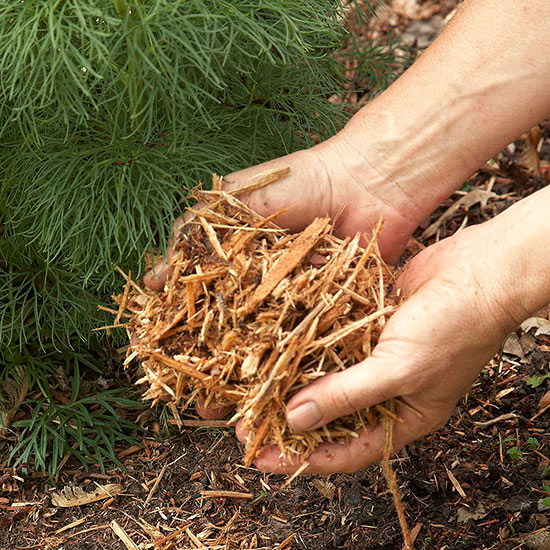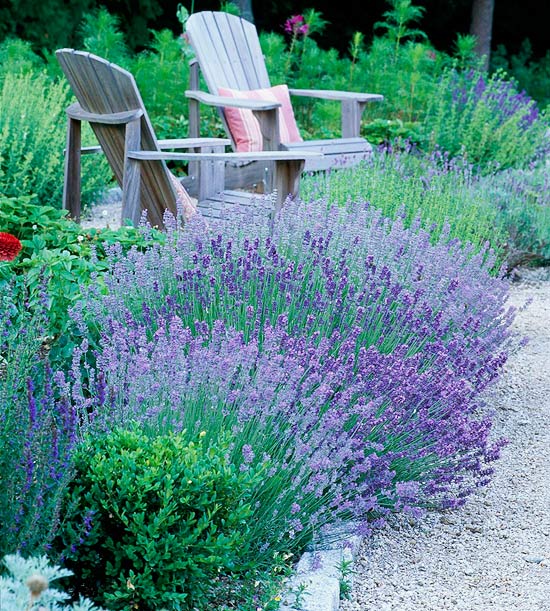






A drought can be a gardener's worst nightmare. When a hot, dry weather pattern settles in, it affects your landscape in a variety of ways. There's nothing you can do to prevent a drought, but there are some strategies you can enact to help minimize the effect it has on your yard.
Impacts of a Drought
The most obvious way a drought affects your garden is the way it makes your plants look: Healthy green foliage wilts, develops crispy brown edges, or dies completely; flowers fade more quickly or fail to appear at all; and plants (even weeds) grow more slowly. Drought weakens your plants, increasing how susceptible they are to attack from insects and disease. It also makes plants less winter-hardy, especially if the drought occurs in fall as plants are going dormant. The hot, dry conditions have a lasting effect, too --- trees and shrubs in particular can take several years to fully recover from drought.
Learn more about watering your garden.
continue reading below
Water Your Garden.
It's the most obvious strategy, of course, but to stay healthy, most garden plants like about an inch of moisture per week. In most cases, it's better to apply the water weekly or every other week. It's a bit of a waste to give your plants less water more frequently: Doing so discourages the roots from growing as deeply into the soil (where it stays moister longer) as they can, and it's also inefficient as more water is lost to evaporation.
Apply Mulch.
A 2- to 3-inch-deep layer of mulch over the soil can do wonders: It keeps the soil cooler and shields the ground from direct sun. The benefit is that moisture stays in the soil longer, where it's more available to your garden plants.
Run a soaker hose underneath your mulch to maximize water savings: Water will be delivered directly to the ground (reducing evaporation) and slowly (reducing water loss to runoff). It will also keep plant foliage dry, which helps prevent many common fungal diseases such as black spot on roses.
Stop Fertilizing.
If you apply fertilizers (organic or synthetic), it's helpful to stop at the onset of a drought. Fertilizers encourage plant growth; the more a plant grows, the more moisture it needs. If fertilizer salts build up in your soil because they're not naturally leaching out with rain or irrigation, they can build up and burn plant roots, causing further damage.
Pull Weeds.
It might not be fun at the best of times, but getting those weeds out of the garden is especially important during drought. The reason: Weeds' roots steal valuable moisture from the soil.
Deadhead Your Flowers.
Removing spent blooms before they have a chance to set seed saves energy for your plants: They don't need to put extra energy (which they need water for) into producing seeds.

The above tips are meant to help keep an existing garden healthy during a drought. If you're looking to plan a more drought-tolerant yard, check out the following resources:
Copyright © www.100flowers.win Botanic Garden All Rights Reserved